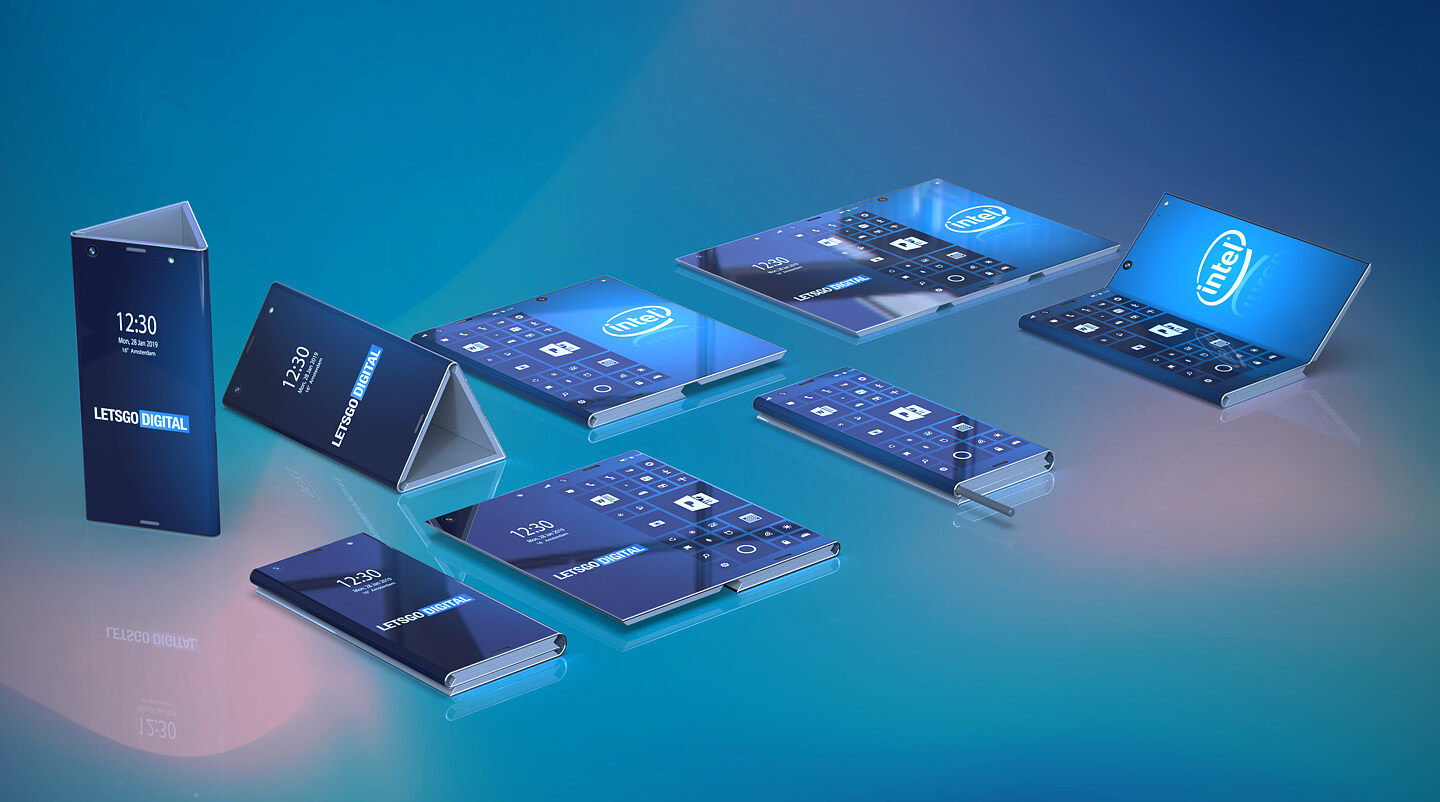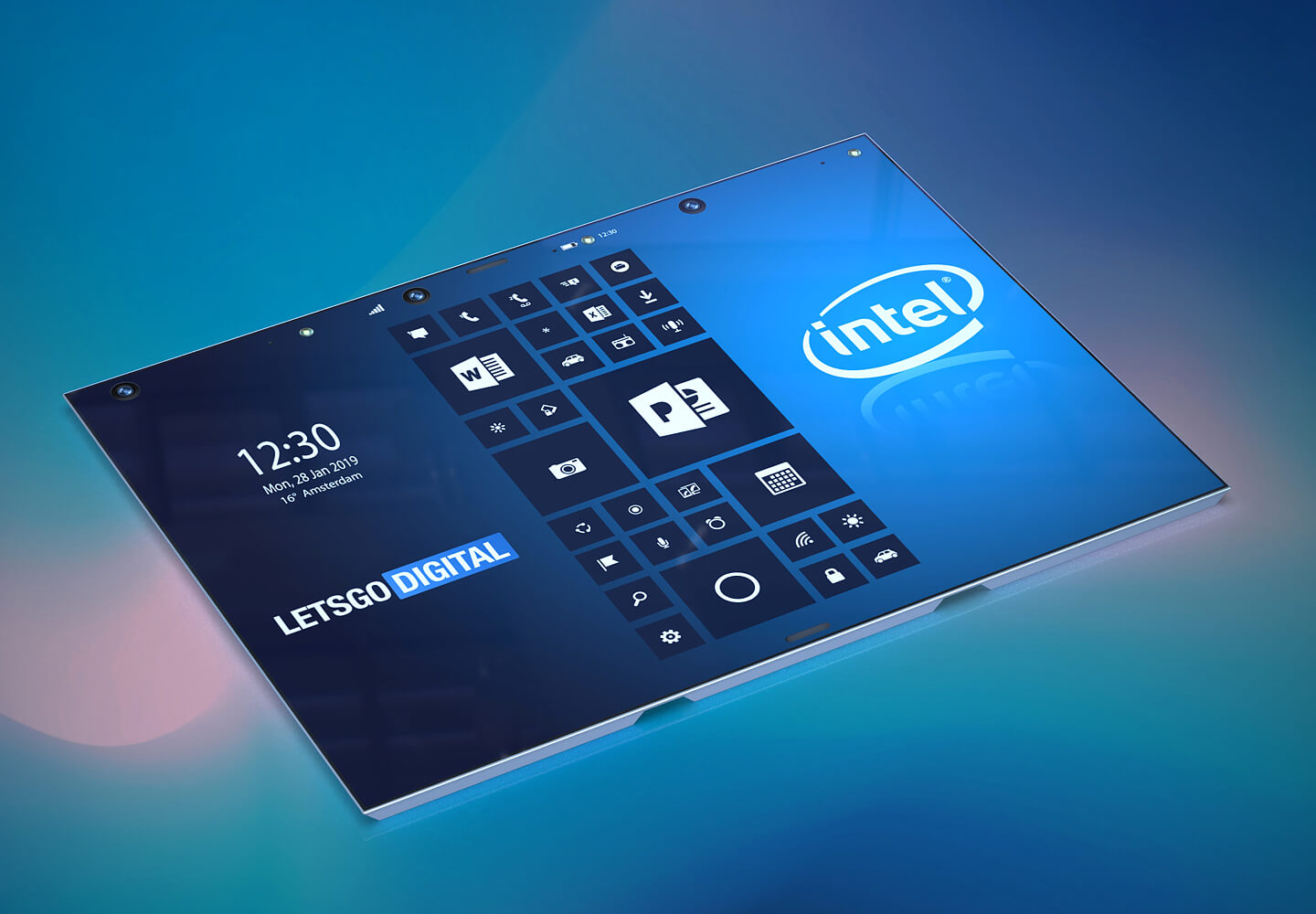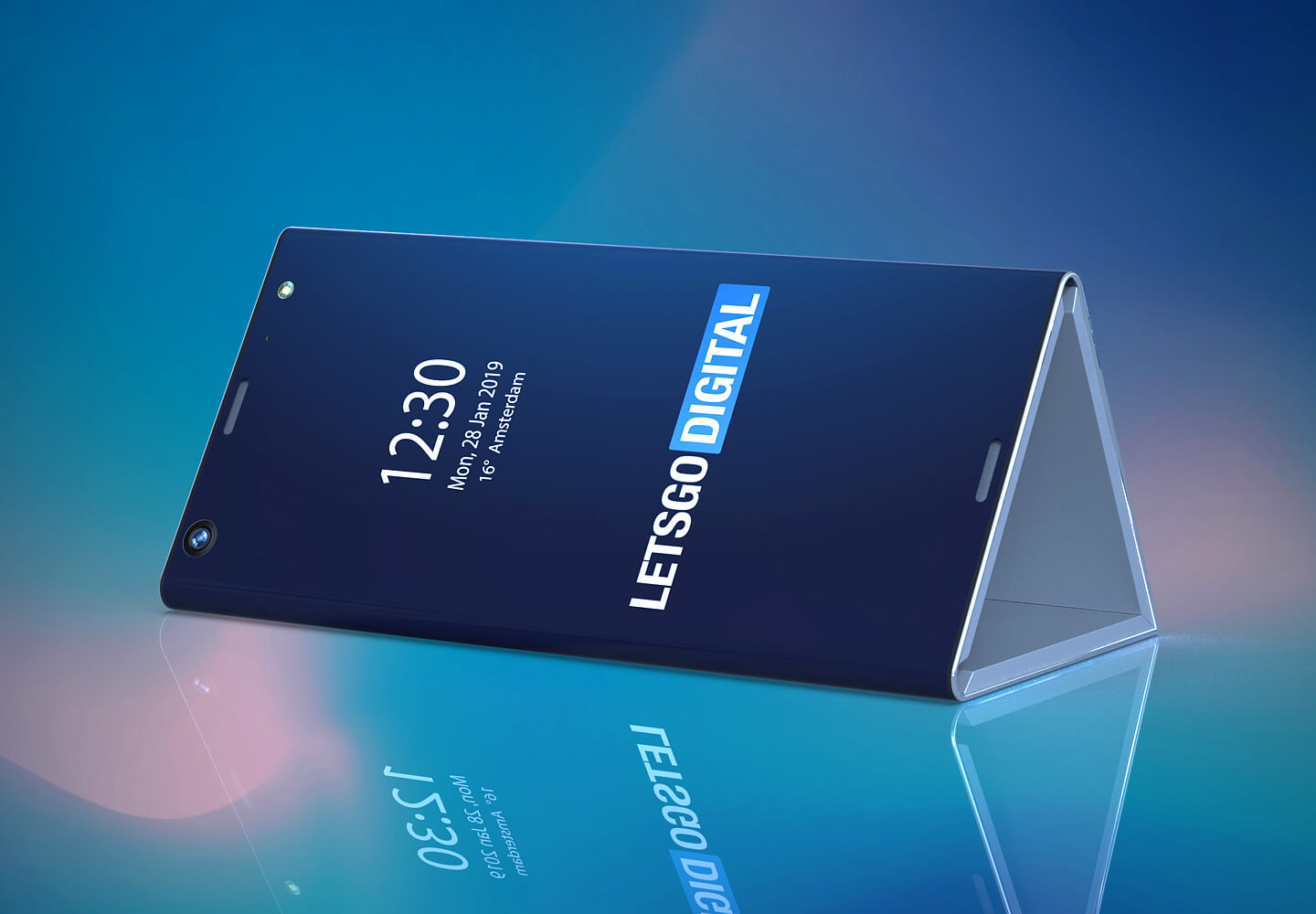Intel Patent Heralds Foldable Future Merging Phone and PC
A newly unearthed patent shows a three-fold device that transforms from phone to full-size tablet.
While China and Korea are launching an Android-based phone invasion in 2019 with the help of Google, Intel may be working on a foldable device reference design that could turn Windows 10 tablets into phones, like the rumored Microsoft Andromeda.

That’s judging by this patent published by the World Intellectual Property Organization in 2017 and now unearthed by Dutch technology blog Let’s Go Digital.
The document shows a triptych folding device with a stylus that can operate in a one-, two-, or three-panel configuration. The patent also points out a weird mode of operation: a triangular orientation that I can imagine can be used as a table-top device.

While a patent is not indicative of a product in any way (especially when Intel doesn’t actually make devices, just the guts for them), it is very interesting that the company has been thinking about this since at least 2016 or even earlier.
MORE: Microsoft Spills Foldable Andromeda Secrets in New Patent
The WIPO patent process starts first with a filing with a national or regional patent, followed by a WIPO filing. This filing doesn’t get published until at least 18 months after the WIPO filing date.
But more importantly, these type of devices are now of capital importance for the once undisputed worldwide processor leader, which has been overshadowed by Qualcomm and Apple’s low-power ARM-based processors in mobile devices.
Sign up to get the BEST of Tom's Guide direct to your inbox.
Get instant access to breaking news, the hottest reviews, great deals and helpful tips.

The company has a history of creating reference designs that PC manufacturers then use to create final products powered by the company’s chips, therefore ensuring a demand for its silicon.
The patented device feels similar to Microsoft Andromeda, originally rumored for 2019 based on multiple rumors and patents. Those rumors were denied by Windows Central’s Zac Bowden, who claimed that the Redmond company wasn’t going to released Andromeda this year. Instead, he said Microsoft was getting ready to launch a foldable Surface notebook-tablet codenamed Centaurus.
According to Bowden, Microsoft had to put Andromeda on hold to ensure a successful launch for Microsoft’s re-entry into the phone market. Right now, Andromeda can’t run full Win32 apps because the screen is too small. For that you need Progressive Web Apps (PWAs) or Universal Windows Platform (UWP) apps that can adapt on the fly to the smaller folded form factor in Andromeda.
Regardless of Andromeda’s delay, the confluence of operating systems — with Google, Android and the Chinese manufacturers advancing from the mobile side of things and Intel and Microsoft going from the laptop and tablet world — seems closer now than ever before. 2019 is without a doubt the year of the foldable phone, but 2020 may become the beginning of the foldable everything.
Jesus Diaz founded the new Sploid for Gawker Media after seven years working at Gizmodo, where he helmed the lost-in-a-bar iPhone 4 story and wrote old angry man rants, among other things. He's a creative director, screenwriter, and producer at The Magic Sauce, and currently writes for Fast Company and Tom's Guide.

